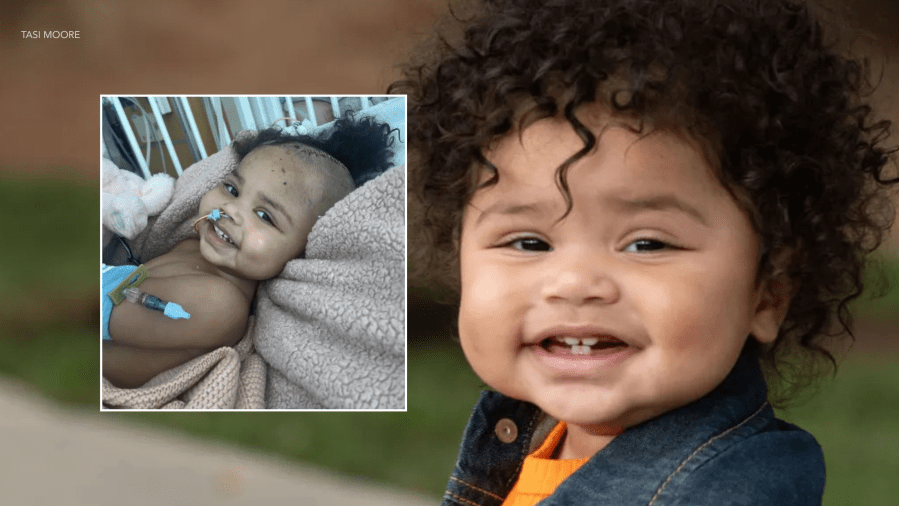A 19-month-old girl from Murrieta, California, is one of just 300 children worldwide dealing with a rare cancer diagnosis.
“Keliyah’s only symptoms for a while were oversleeping and vomiting. She threw up just once a day every couple of weeks for about 2–3 months,” Tasi Moore, Keliyah’s mother, said in an interview with KTLA. “We took her to the ER every time it happened, but doctors assumed it was a stomach virus.”
After a few months of throwing up, Moore and her husband found Keliyah unresponsive one morning. This led to her being admitted to Rady Children’s Hospital and getting emergency surgery for a brain tumor.
The little girl’s oncology team diagnosed the infant with an incredibly rare and aggressive brain cancer called Embryonal Tumor with Multilayered Rosettes (ETMR). ETMR has a survival rate of just 10–20%, and many children don’t survive beyond a year without access to immediate, aggressive treatment from experienced specialists. Due to its rarity, few specialists are experienced in treating it, making Keliyah’s journey uniquely difficult and urgent.
Keliyah’s oncology team at Rady Children’s Hospital is working with an expert in dealing with EMTR – the Section Chief of Pediatric Neuro-oncology at the Joseph M. Sanzari Children’s Hospital at Hackensack University Medical Center.

“Keliyah is more than a diagnosis. She’s a loving, spirited little girl who deserves a fighting chance,” Tasi Moore, Keliyah’s mother, said.
“This story isn’t just about a medical battle—it’s about a child’s fight for life and a family doing everything in their power to keep her safe and supported through it. Our hope is that by sharing Keliyah’s journey, we can raise awareness about ETMR, the devastating impact it has on families, and the desperate need for more research and support,” Tasi Moore, Keliyah’s mother, said.
The family is asking for any donations to help get their daughter to her specialists across the country. The GoFundMe can be found here.
When asked what advice they have for any other families dealing with childhood illness, Moore said, “Trust your gut. If something feels off with your child, keep pushing for answers. Don’t be afraid to ask for second opinions or reach out to specialists across the country.”
Moore said this experience has completely changed her family’s perspective on life.
“We’ve learned how small things really are in the grand scheme of things,” she said. “Life can change in an instant—one day you’re playing peek-a-boo, the next you’re in an ICU praying your baby survives brain surgery.”
